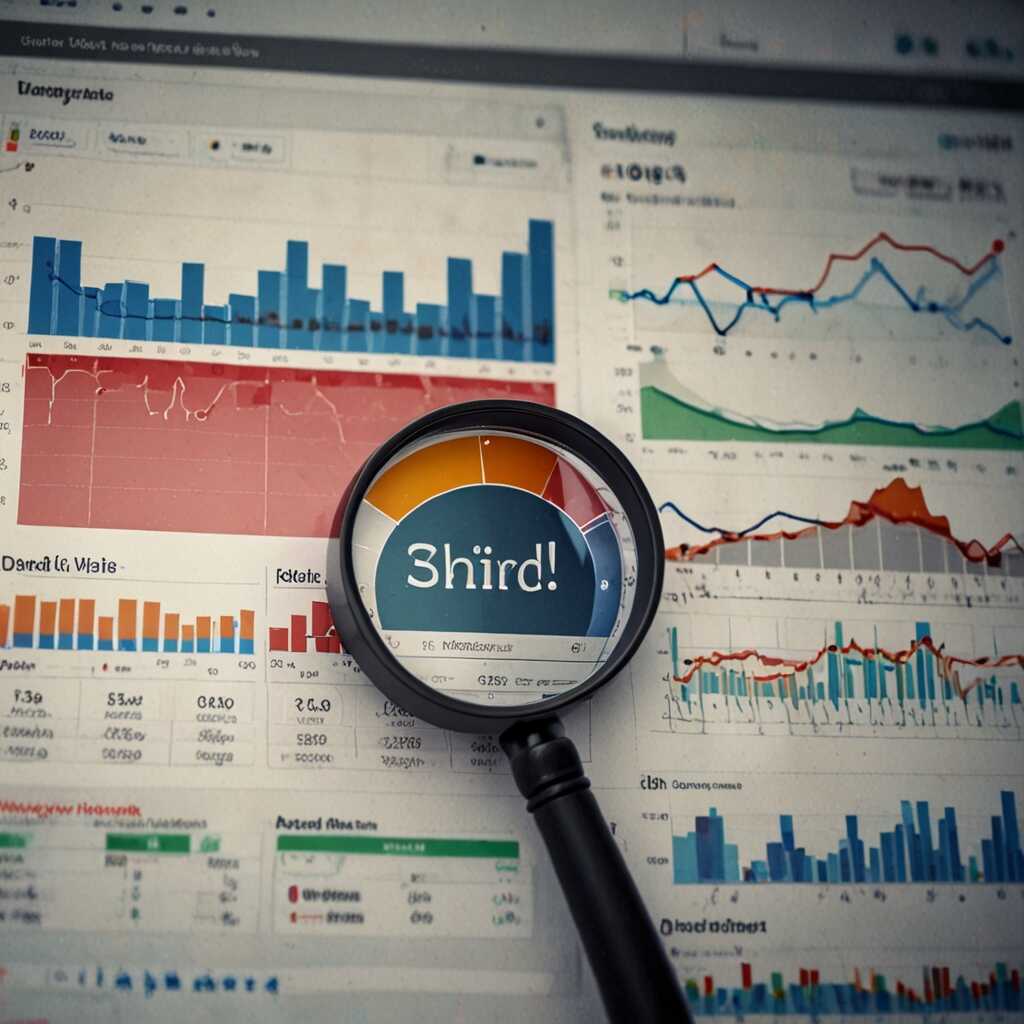Understanding how indexing influences your website ranking and visibility in search engines is crucial for online success. Indexing determines which pages are included in search results, ultimately impacting your site’s traffic and performance. At Metrics Rule, we specialize in SEO strategies that enhance indexing, helping businesses improve their ranking and visibility. By optimizing your site’s indexing process, you can attract more visitors and boost your overall digital presence.
Basics of Website Indexing and Its Importance for Ranking
Website indexing is the process where search engines, like Google and Bing, crawl and store data about your website’s pages. It directly affects your search engine rankings, as indexed pages are available for users to find in search results. Factors that influence indexing include technical SEO elements like page speed and mobile-friendliness, as well as content quality and backlinks. A well-optimized website ensures that search engines can easily crawl and index pages, which enhances overall visibility. Ideally, having a balanced number of indexed pages—neither too few nor excessively many—helps in better ranking positions, leading to improved organic traffic.
Key Factors That Influence Website Indexing
Several critical elements influence website indexing, ensuring your site gets the visibility it deserves. First, technical SEO factors play a vital role; ensuring your website’s speed and mobile optimization fosters better crawling efficiency. Second, content optimization is essential. Quality content with relevant keywords improves user engagement and encourages search engines to index pages promptly. Furthermore, backlinks—links from other reputable sites—help validate your content’s relevance, increasing the chances of better indexation. Implementing an effective sitemap is useful as it guides search engines through your website structure, ensuring all important pages are discovered and indexed efficiently.
How Indexing Affects Search Engine Optimization Goals
Indexing plays a crucial role in determining your website’s performance in search results. Effective indexing ensures that search engines, like Google and Bing, can crawl and understand your content accurately. This process enhances your search engine visibility and boosts your chances of ranking higher for relevant keywords. However, many SEO professionals encounter indexing challenges, such as issues with crawling due to website structure or improper use of sitemaps. In 2025, staying updated on these challenges is essential for optimizing your site. New content typically takes a few hours to a few days to be indexed depending on factors like website authority and crawl frequency.
Understanding Website Indexing Challenges for SEO Success
Understanding website indexing challenges is vital for successful SEO. Common issues include slow indexing speeds and errors in XML sitemaps that hinder search engine crawling. To enhance indexing efficiency, ensure your sitemap is regularly updated and that your website’s technical structure is robust. This approach can significantly improve indexing rates. Tools like Google Search Console provide insights into indexing status and highlight any issues. SEO professionals can utilize this data to make informed decisions, ensuring their sites remain competitive. Proper attention to indexing can make a vast difference in achieving your SEO goals and improving overall search performance.

Identifying and Resolving Common Indexing Problems
Websites often encounter various indexing problems that can hinder their performance in search engines. Common issues include incorrect robots.txt files, poorly optimized sitemaps, and pages blocked from crawling by the meta tags. These problems prevent search engines from indexing the content effectively, leading to lower search visibility and potentially dropping rankings. Moreover, it is estimated that about 25% of all webpages have some sort of indexing issue. By identifying these errors, users can enhance their website’s performance and ensure better search engine results.
Understanding the Impact of Technical SEO on Indexing
Technical SEO plays a critical role in ensuring your webpages are indexed properly. It includes optimizing elements like website structure, loading speed, and XML sitemaps. A well-structured website helps search engines easily crawl and index content, improving overall search visibility. Regular testing through tools like Google Analytics allows users to track indexing issues and identify areas needing improvement. Implementing best practices in technical SEO will enhance the reliability and efficiency of your website’s indexing process.
Important Statistics Related to Website Visibility and Ranking
- About 90% of web users never scroll past the first page of search results.
- Approximately 75% of users trust organic search results over paid ads.
- Websites that load in under 3 seconds have a 32% higher conversion rate.
- 63% of mobile users expect a page to load in 3 seconds or less.
- Studies show that over 50% of search queries are four words or longer.
- Google takes between 4 to 8 weeks to fully index new content.
- Over 60% of marketers say SEO is their top inbound marketing priority.

Best Practices for Optimizing Website Indexing Efficiency
To enhance the indexing speed of your website, focus on several key practices. First, ensure your website is fully accessible to search engines by fixing any crawl errors and using proper redirects. Next, improve indexing efficiency through optimized sitemap generation, limiting the number of unnecessary pages included, and leveraging robots.txt effectively. Additionally, prioritize technical SEO best practices, such as minimizing page load times and enhancing mobile performance. Regularly testing your website using tools like Google Search Console can provide insights into indexing issues, helping you fix problems quickly and improve overall visibility.
Key Factors for Ensuring Efficient Indexing
Ensuring efficient indexing requires a multi-faceted approach. Start by ensuring your site’s structure is clear and logical, making it easier for search bots to crawl and index your pages. Use HTML sitemaps for users and XML sitemaps for search engines, as these documents highlight your website’s important pages. Aim to include no more than 50,000 URLs in your XML sitemap for optimal performance. By implementing structured data and optimizing loading speeds, you create a reliable and high-quality user experience, which in turn can enhance your website’s indexing effectiveness significantly.

Link Between Content Quality and Effective Indexing
Content quality is essential for effective indexing. Search engines prioritize high-quality, relevant content because it enhances user experience. Pages with well-written, informative, and original content are more likely to be indexed quickly and efficiently. When search engines crawl a website, they analyze content for factors like reliability, relevance, and keyword usage. High-quality content incorporates well-researched data and answers the needs of users, which helps improve its chances of being indexed effectively.
Types of Content That Enhance Indexing Outcomes
In 2025, content types such as comprehensive blog posts, informative videos, and detailed infographics will significantly enhance indexing outcomes. Search engines favor long-form content that covers topics in-depth and provides valuable insights. For instance, a detailed review or comparison of e-commerce platforms can lead to increased visibility in search results. Incorporating relevant keywords naturally into these content forms further boosts search performance. Content that is regularly updated also retains freshness, making it more appealing to search engines for indexing.
Advantages of Effective Search Engine Indexing
- Higher visibility in search results leads to more site traffic.
- Your website becomes more accessible to users searching relevant queries.
- Improved indexation increases the chances of ranking for competitive keywords.
- A well-structured site can gain higher authority in search engines.
- Increased organic traffic often decreases reliance on paid advertising.
- Higher site speed boosts user engagement and decreases bounce rates.
- Timely indexed content helps establish your site as a trusted resource.

Technical SEO Elements That Enhance the Indexing Process
The efficiency of how effectively a site can be indexed relies heavily on several technical SEO elements. Key factors include website structure, which helps search engines navigate the site easily. An optimized URL structure, proper use of header tags, and organized content all contribute to better indexing results. Loading speed is another crucial element. Studies show that faster-loading sites improve user experience and enhance indexing efficiency by enabling search engines to crawl pages more effectively.
Impacts of Website Structure on Indexing
Website structure significantly influences how search engines crawl and index your content. A flat hierarchical structure allows for easy navigation, which is essential for both users and crawlers. Implementing a logical categorization of content supports quicker access to information, making it easier for search engine bots to index pages. Additionally, the use of XML sitemaps can enhance this process by providing a roadmap for crawlers. Keeping your structure clean and well-organized ultimately helps improve your site’s search engine visibility and indexing efficiency, which are critical for SEO success.
Tools and Strategies for Monitoring Indexing Performance
To effectively monitor your website’s indexing performance, consider using tools like Google Search Console, SEMrush, and Ahrefs. Google Search Console provides insights into indexing status and allows you to submit sitemaps, monitoring crawl errors. SEMrush offers comprehensive reports on URL indexing, ensuring you know which pages are visible to search engines. Ahrefs can help you analyze backlink performance, which is essential for improving indexing. When comparing indexing performance tools, look for features like real-time data, user-friendly interfaces, and compatibility with your website type. Aim for a target of over 90% of your website’s pages being indexed for optimal visibility in search engine results.
Best Practices for Enhancing Indexing Efficiency
To enhance the efficiency of your website’s indexing, focus on maintaining a clean XML sitemap and optimizing your robots.txt file. An organized sitemap makes it easier for search engines to crawl your website effectively, increasing the chances of good indexing. Regularly review your indexed pages to remove any low-quality content that might hinder overall performance. Implement strategies such as internal linking to help search engines discover your content. Additionally, create high-quality, relevant content regularly, as fresh content is more likely to be indexed quickly. This comprehensive approach not only boosts your indexing status but also improves your overall SEO performance.
Comparative Analysis of Relevant Brands and Their Metrics
- Google: Vast user base but difficult to manipulate algorithms.
- Bing: Easier to rank for certain niches though has a smaller audience.
- Yahoo: Good for specific demographics, but less efficient indexing.
- DuckDuckGo: Privacy-focused, attracts users avoiding ad tracking.
- Local SEO Tools: Great for small businesses but limited in scalability.
- Ahrefs: Strong for backlink analysis but can be pricey for startups.
- SEMrush: Comprehensive tools for data analysis, used by many marketers.
Emerging Trends in Website Indexing and Their SEO Implications
Emerging indexing trends are essential for SEO professionals to grasp in today’s digital landscape. The increasing reliance on AI in search engine algorithms enhances indexing processes, which impacts how websites rank in search results. The way Google, Bing, and other engines crawl and index websites can differ, affecting the visibility of small business or e-commerce sites. Such variations highlight the need for SEO strategies to adapt to these changes, ensuring that site performance remains competitive. By 2025, it’s estimated that over 70% of websites could see improved visibility through proper optimization of indexing strategies.
Understanding Search Engine Indexing Approaches
Search engines like Google and Bing have distinct indexing techniques that significantly influence SEO. Google employs a sophisticated combination of crawling, indexing, and ranking processes, optimizing for quality and relevance. On the other hand, Bing focuses more on user engagement metrics and the semantic understanding of content. Effective technical SEO improvements can enhance how well a site is indexed by these search engines, thereby improving site performance and user experience. To keep up with advanced indexing requirements, website owners should prioritize their sitemap, robots.txt files, and content optimization. This approach not only aligns with emerging indexing trends but also maximizes the benefits that ensure greater visibility in search results.
